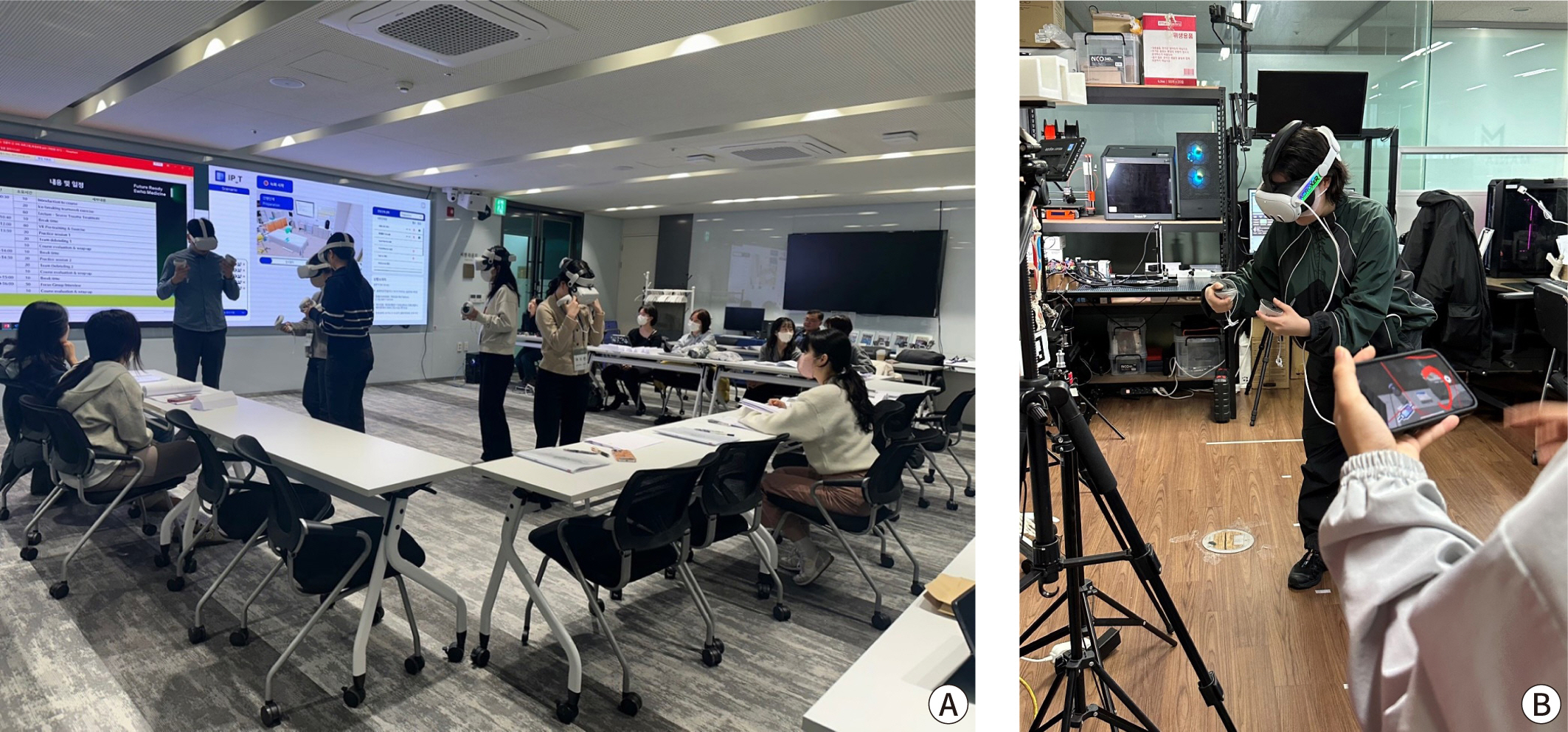Ewha Med J.
2024 Jul;47(3):e40. 10.12771/emj.2024.e40.
Motivations, positive experiences, and concept changes of medical students in Korea after participating in an experiential entrepreneurship course: a qualitative study
- Affiliations
-
- 1Ewha Medical Education Center, Ewha Womans University College of Medicine , Seoul, Korea
- 2Ewha Medical Research Institute, Ewha Womans University College of Medicine, Seoul, Korea
- 3Ewha Medical Artificial Intelligence Research Institute, Ewha Womans University College of Medicine, Seoul, Korea
- 4Department of Biomedical Engineering, Ewha Womans University College of Medicine, Seoul, Korea
- 5Department of Parasitology, Ewha Womans University College of Medicine, Seoul, Korea
- 6Department of Internal Medicine, Ewha Womans University College of Medicine, Seoul, Korea
- 7Ewha Womans University College of Medicine, Seoul, Korea
- 8Department of Environmental Medicine, Ewha Womans University College of Medicine, Seoul, Korea
- 9Institute of Ewha-SCL for Environmental Health (IESEH), Ewha Womans University College of Medicine, Seoul, Korea
- 10Graduate Program in System Health Science and Engineering, Ewha Womans University College of Medicine, Seoul, Korea
- 11Department of Medical Science, Ewha Womans University College of Medicine and Ewha Medical Research Institute, Seoul, Korea
- KMID: 2558577
- DOI: http://doi.org/10.12771/emj.2024.e40
Abstract
Objectives
This study explored the experiences of medical students enrolled in an elective course titled "Healthcare Innovation and Women's Ventures II" at Ewha Womans University College of Medicine. The research questions were as follows: First, what motivated medical students to participate in the experiential entrepreneurship course? Second, what experiences did the students have during the course? Third, what changes did the students undergo as a result of the course?
Methods
Focus group interviews were conducted with six medical students who participated in the experiential entrepreneurship course from February 13 to 23, 2024.
Results
The analysis identified three domains, seven categories, and 17 subcategories. In terms of motivations for enrolling in the experiential entrepreneurship course, two categories were identified: "existing interest" and "new exploration." With respect to the experiences gained from the course, three categories emerged: "cognitive experiences," "emotional experiences," and "behavioral experiences." Finally, two categories were identified concerning the changes participants experienced through the course: "changes related to entrepreneurship" and "changes related to career paths."
Conclusion
Students were motivated to enroll in this course by both their existing interests and their desire to explore new areas. Following the course, they underwent cognitive, emotional, and behavioral changes. Their perceptions of entrepreneurship and career paths were significantly altered. This study is important because it explores the impact of entrepreneurship education in medical schools from the students' perspective.
Figure
Reference
-
References
1. Ahn T, Park J. The effectiveness of entrepreneurship education on college students' career paths. J Ventur Entrep. 2018; 13(2):177–192. DOI: 10.16972/apjbve.13.2.201804.177.2. Kim YJ, No BS. The effect of entrepreneurship education on self-leadership and entrepreneurship. J Digit Converg. 2012; 10(6):23–31. DOI: 10.14400/JDPM.2012.10.6.023.3. Park SH, Seol BM. A case study of entrepreneurship consulting linking graduate school of entrepreneurship and college students: entrepreneurship education and consulting program using action learning. J Ventur Entrep. 2014; 9(1):25–32. DOI: 10.16972/apjbve.9.1.201402.25.4. Lee SJ, Park WY, Lee BK. The influence of entrepreneurial mentoring on the entrepreneurial educational satisfaction and entrepreneurial intentions in physical education university students. J Tourism Leisure Res. 2019; 31(12):407–422. DOI: 10.31336/JTLR.2019.12.31.12.407.5. Cheon KH, Park E, Song YM. The effect of self-regulated learning on career adaptation among medical students. J Vocational Educ Res. 2011; 30:161–177. DOI: 10.37209/krabe.2011.30.4.161.6. Sud S, Wong JP, Premji L, Punnett A. Career decision making in undergraduate medical education. Can Med Educ J. 2020; 11(3):e56–e66. DOI: 10.36834/cmej.69220. PMID: 32802227. PMCID: PMC7378141.7. Navarro A. A model for implementing medical student career development courses. MedEdPORTAL. 2010; 6:8197. DOI: 10.15766/mep_2374-8265.8197.8. Navarro AM, Taylor AD, Pokorny AP. Three innovative curricula for addressing medical students' career development. Acad Med. 2011; 86(1):72–76. DOI: 10.1097/ACM.0b013e3181ff7dfc. PMID: 21099397.9. Patton MQ. Qualitative evaluation and research methods. Thousand Oaks: SAGE;1990.10. Hoyt WT, Bhati KS. Principles and practices: an empirical examination of qualitative research in the Journal of Counseling Psychology. J Couns Psychol. 2007; 54(2):201–210. DOI: 10.1037/0022-0167.54.2.201.11. Houle CO. Continuing learning in the professions. J Contin Educ Health Prof. 1981; 1(1):76–80. DOI: 10.1002/chp.4760010112.12. Kim YS, Sung CS, Park JY. A study on the effect of entrepreneurship education on career decision for college engineering students. J Eng Educ Res. 2018; 21(2):28–38. DOI: 10.18108/jeer.2018.21.2.28.13. Jung UJ. Analysis of the effectiveness of career exploration education linked with Bizcool Entrepreneurship Education. J Ventur Entrep. 2014; 9(3):89–95. DOI: 10.16972/apjbve.9.3.201406.89.14. Roure JB, Maidique MA. Linking prefunding factors and high-technology venture success: an exploratory study. J Bus Ventur. 1986; 1(3):295–306. DOI: 10.1016/0883-9026(86)90006-6.15. Liu L, Chung B. The influence of communication and task interdependence between the members of the startup team on the team effectiveness through the mediation of swift trust: the moderated mediation effect of team virtuality. J Organ Personnel Manag. 2019; 43(3):31–58. DOI: 10.36459/jom.2019.43.3.31.16. Yang J, Kim C. The effect of entrepreneurship education on entrepreneurial intention: focused on double mediation effect of entrepreneurial self-efficacy and entrepreneurial motivation. J Korean Manag Assoc. 2020; 33(3):443–461. DOI: 10.18032/kaaba.2020.33.3.443.
- Full Text Links
- Actions
-
Cited
- CITED
-
- Close
- Share
- Similar articles
-
- Experiences of nursing students with virtual reality-based anatomy education in Korea: a qualitative content analysis
- A Qualitative Content Analysis of Experiences on Concept Mapping for Pathophysiology in Nursing Students
- Korean Nursing Students' Experience of Ego Identity Development
- Mentoring Experience of Nursing Students Participating in a Health Promotion Program for Elementary School Students
- The Failure Experiences of Medical School Students: A Qualitative Study


